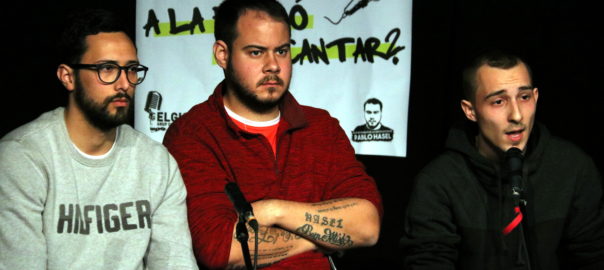13.03.2018 - 15:20
The increased use by Spanish courts of a “draconian law” banning the glorification of terrorism to prosecute artists, journalists and ordinary citizens “is part of a sustained attack on freedom of expression,” according to a new report by Amnesty International.
The number of people charged under Article 578 of the Spanish criminal code went up from three in 2011 to 39 in 2017, the report found. In the past two years alone, nearly 70 people have been convicted under the law, with those found guilty facing fines, bans from working in the public sector and even prison sentences.
The charity states that the exponential increase of cases “has had a profoundly chilling effect, creating an environment in which people are increasingly afraid to express alternative views, or make controversial jokes.”
Sentenced rappers
The report includes the case of 12 rappers from the ‘La Insurgencia’ collective, who were each sentenced to more than two years in prison and banned from working in the public sector for lyrics deemed to “glorify” the armed Marxist group GRAPO. One of the band’s members recently attended a press conference in the Catalan city of Sabadell, in which other Hip Hop artists convicted for similar offenses claimed that their prosecution was an attack on freedom of expression.
“Sending rappers to jail for song lyrics and outlawing political satire demonstrates how narrow the boundaries of acceptable online speech have become in Spain,” said Esteban Beltrán, the director of Amnesty International Spain. “Spain’s broad and vaguely-worded law is resulting in the silencing of free speech and the crushing of artistic expression.”
Journalists have fallen foul of Article 578, too. The report documents the case of a filmmaker being prosecuted for a film in which he interviewed several people who had themselves been prosecuted on charges of glorifying terrorism.
National security as pretext
Article 578 was broadened in 2015 following the Paris terror attacks and the perceived threat of international terrorism. Yet, Amnesty found that the vast majority of cases brought under the law relate to domestic armed groups, such as ETA and GRAPO, which have long been inactive.
Amnesty states that “vague” expressions used to prosecute crimes, such as “glorification of terrorism” and “humiliation” of its victims, endanger the right to freedom of expression.
“Spain is emblematic of a disturbing trend that has seen states across Europe unduly restricting expression on the pretext of national security and stripping away rights under the guise of defending them,” said Eda Seyhan, Amnesty’s campaigner on counter-terrorism.



